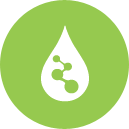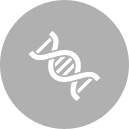i-FIDER Smart Cancer Screening
Smart Cancer Screening
Smart Cancer Screening Test
What is Smart Cancer Screening ?
It is a quick and comfortable test with your blood that contains a lot of health information.
smart cancer screeninguses a small amount of blood to detect the risk of the eight major cancers (lung cancer, liver cancer, stomach cancer, colon cancer, pancreatic cancer, prostate cancer, breast cancer and ovarian cancer).
Multiple Protein Biomarker AnalysisThe Smart Cancer Screening precisely analyzes a number of protein biomarkers (markers) in the blood using world-class, state-of-the-art equipment such as Roche.
Big Data Statistics AnalysisThe analyzed blood is analyzed by unique big data statistics, which realizes a higher detection rate than the tumor marker blood test which analyzes one biomarker for each cancer.
Now you can safely and easily examine
lung cancer, liver cancer, stomach cancer, colon cancer,
pancreatic cancer, prostate cancer, breast cancer and ovarian cancer
with the Smart Cancer Screening.
Jointly Developed
with Seoul National
University’s TIMRC
- The paradigm of the medical market is shifting from treatment to prevention, and the maintenance of healthy life through early detection and prevention is more important than ever. As a result, BIOINFRA Clinic wants to help you manage your health before you will have to treat any disease.
- Smart Cancer Screening, developed jointly with the Seoul National University Tumor Immunology and Medical Research Center (TIMRC) through decades of research, examines cancer risks for the eight major cancers with a small amount of blood, which can pose a threat to health prior to treating the disease. Knowing ahead of time will help you enjoy a healthy and happy life. For your health blueprint, BIOINFRA Clinic promises to provide continuous healthcare services.
Smart Cancer Screening Technology
Systematic Cancer Risk Viewed with Multiple Indicators
Smart Cancer Screening is a test that measures the risk of 8 major cancers through protein biomarkers in blood.

- Lung

- Liver

- Stomach

- Colorectal

- Pancreas

- Prostate

- Breast

- Ovary

-
There are several types of biomarkers in the blood. Conventional blood tests for cancer test only one
tumor-specific marker associated with each different cancer; however, more factors shall be considered
as various factors are associated with cancer.Smart Cancer Screening is a comprehensive analysis of protein biomarkers selected by
Dr. Chul-Woo Kim during his research as Professor of pathology at Seoul National University Hospital
for over 30 years, and it provides cancer risks at higher detection rates with added considerations
such as new blood vessel proliferation about cancer cells, immune system, and metabolic flow.
Smart Cancer Screening
New screening technology to protect your health

- Easy with a
small amount of blood!

- Safely without
exposure to radiation!

- Comfort without
endoscopy!

- Quick without
fasting and Bowl Emptying!

- Stay healthy with
early cancer clinic!

- Reliable with
high detection rate!
Smart Cancer Screening at a Glance
Advantages of Smart Cancer Screening

-
smart cancer screening
A small amount of blood can be tested for eight different cancers (lung cancer, liver cancer, stomach cancer, colon cancer, pancreatic cancer,
prostate cancer, breast cancer and ovarian cancer)Safe and easy screening without radiation exposure and endoscopy
Healthy people can manage their health to reduce risk

-
Tumor marker blood test (general blood test)
It is a safe and simple test with blood only, but detection rate is lower than multi-marker test with many markers.
Genetic analysis blood test
Difficulty in identifying biofunctional characteristics with tests to analyze heredity for cancer

-
CT, MRI, PET-CT (imaging test)
Method of visually inspecting an image generated by transmitting radiation through a body with an imaging device. Up to 11 years of daily exposure
to radiation at a time. Maybe more effective to use when precise examination is necessary because of possible side effects * Source: Research team, Professor of Family Medicine, Seoul Medical Center

-
Endoscope (stomach, large intestine, etc.)
Visual inspection by inserting the camera into the digestive system. Biopsy may be performed if there is any abnormality during the examination
Endoscopic insertion can strain the body, and early cancer can be missed by the examiner.




